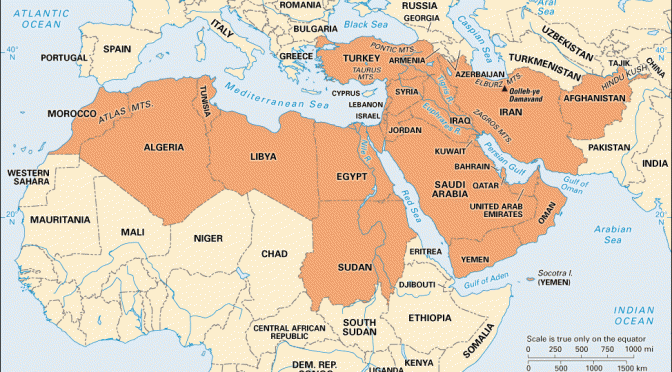The great struggles in the Middle East are tinged with religion: Sunni supremacists in the Islamic State, Shi’a supremacists in Tehran, Arabs and Jews waging war on one another over the old mandate of Palestine, to name just a few.
And yet, not so long ago, many Middle Eastern states were using the language of socialism, nationalism, and even communism – ‘isms’ that brook little competition from religion. Inconsistent, yes, but also truth of a wider trend: once upon a time, many Arab states were actively switching their social glue from Islam to modern ideologies.
Consider the national anthem of the United Arab Emirates, whose notes were penned in 1971 and whose lyrics were written in 1996. Full of socialist and nationalist language, the anthem extols work, Arabism, and the Emirati homeland. The Egyptian Constitution of 1971 cried out for Arab unity, while Qaddafi’s Green Book was an odd hodgepodge of nationalism and socialism. The Palestinian Liberation Organization’s founding charter of 1964 doesn’t even mention Islam.
Algeria practiced Algerian socialism until the 1990s; the largest party today in Tunisia, Nida Tunis, draws heavily from secularism and socialism. Officially Arab socialist states included Mubarak’s Egypt, Saddam’s Iraq, and Assad’s Syria. Even after a communist coup in 1971, Sudan continued to pursue socialism.
Once the United States fretted it was losing the Arab world to communism; now, hardly anyone even mutters the world “socialism.” The Middle East has taken a trajectory that seemed to aim for ideological parity with Europe to one that has gone almost entirely the opposite.
Why the Middle East Never Went Secular - http://wp.me/p3B8W2-18f

